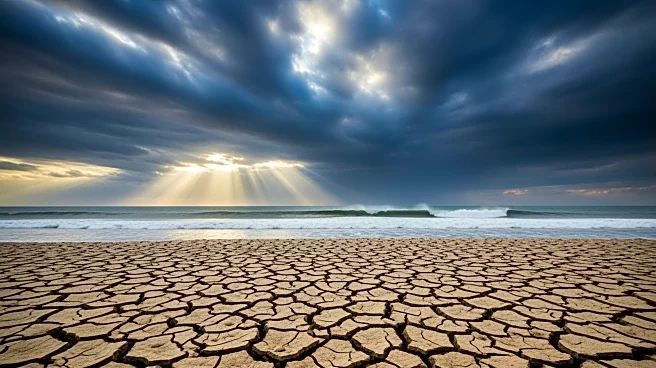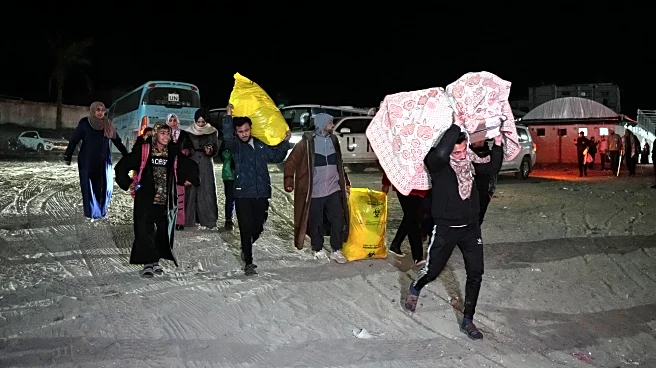What's Happening?
At the COP30 climate talks in Belem, Brazil, nations affected by recent natural disasters, including Jamaica and Cuba, called for urgent action to address climate change. Jamaica's Economic Growth Minister, Matthew Samuda, highlighted the devastating
impact of Hurricane Melissa, which caused significant damage and displacement. The conference emphasized the need for countries to cut emissions and for wealthy nations to provide financial support to poorer countries. The discussions underscored the inadequacy of current climate plans in meeting the 1.5-degree Celsius warming limit set by the Paris Agreement.
Why It's Important?
The calls for action at COP30 reflect the urgent need to address climate change, which poses existential threats to vulnerable nations. The impact of natural disasters on these countries highlights the importance of global cooperation in reducing emissions and providing financial aid. The conference serves as a platform for affected nations to voice their concerns and push for stronger commitments from major emitters. The outcome of these talks could influence international climate policy and determine the level of support provided to countries facing climate-related challenges.
What's Next?
As high-level ministers take over negotiations, there is potential for significant political decisions to be made. The conference may address the inadequacy of current emissions-cutting plans and explore strategies for phasing out fossil fuels. The Brazilian presidency has issued a summary on how to proceed with these issues, including trade disputes and financial aid pledges. The outcome of COP30 could lead to new commitments and actions to mitigate climate change and support vulnerable nations.
Beyond the Headlines
The discussions at COP30 highlight the ethical and legal dimensions of climate change, emphasizing the responsibility of major emitters to support affected nations. The conference also underscores the need for a global shift towards sustainable practices and the importance of international legal frameworks in addressing climate challenges. The urgency expressed by vulnerable nations serves as a reminder of the moral duty to protect the planet and ensure a safe future for all.














